by admin | Nov 1, 2017 | Message from Kahu
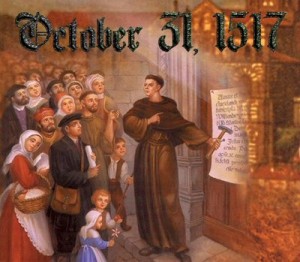
500th Anniversary of the Reformation
“Always Reforming”
On Sunday we celebrated the 500th anniversary of the Protestant Reformation. I shared a couple of family stories about some rather hostile words and actions between some of my relatives. Catholics and Protestants sometimes spoke very unkind words to each other, and sometimes they didn’t speak to each other at all. My mother’s paternal grandmother would have nothing to do with her grandchildren, for example, because they were not raised by two Catholic parents. On my father’s side of the family, there were Catholics who converted to Pentecostals and then told the Catholics they were going to hell.
The 500th anniversary of the Protestant Reformation is today, as it began on October 31, 1517, when Martin Luther, the German priest and professor of moral theology at the University of Wittenberg, wrote a letter to the Archbishop in an attempt to stand up to the unjust teachings and practices of the Church. Because of the hostility between Catholics and Protestants over the ages, including in my own family, I “celebrated” the Reformation with some sadness.
I also shared an encounter I had with a Catholic priest by the name of Father Richard Hopkins, a distant cousin on my mother’s paternal side of the family—the side where my great-grandmother would have nothing to do with my mother and her two brothers. Father Richard reached out to me in the 1990’s and brought healing to my family. He died this past August at the age of 98. I was reminded this past week as I read his obituary of the Church’s need to always be reforming, for the Church always has more to learn in terms of loving others with God’s unconditional and eternal love. Father Richard was a wonderful example of that for me.
I am wondering how I might be better at loving others. I hope you are wondering the same!
Aloha nui!
Kahu Alan Akana
_______________
Videos of Kahu’s Sunday’s sermon are uploaded onto YouTube whenever available. Please share these videos with friends. Please feel free to “Like” any of the videos you see and share them on social media, such as Facebook, so that others will notice them. You may also subscribe to the page on YouTube; that way you can receive a notification when a new sermon is posted.
“A Message from Kahu Alan Akana” is provided most weeks by the Kahu (Pastor) of Koloa Union Church, a congregation of the United Church of Christ (UCC), a member of the Kauai Association and Hawaii Conference.
by admin | Oct 4, 2017 | Message from Kahu
“Gratitude and Generosity”
On Sunday, we read Jesus’ parable in Matthew about the laborers in the vineyard. There were some who worked all day, others who started working around 9 a.m., others around noon, others around 3 p.m. and even some around 5 p.m. At 6 p.m., the owner of the vineyard first paid the workers who started last—and he gave them a full day’s wage. Obviously, those who worked all day expected a lot more than those who worked only an hour, but they got the exact same amount; and that amount was just enough to feed their families for one day. So those workers complained. Of course, we can resonate with them because, if we were in their shoes, we would want more than those who worked only an hour. To pay everyone the same just isn’t fair!
We can probably all think of times in our lives when life has not been fair and we have complained about it. (And, frankly, there are times when we should complain, or at least, make very clear requests, when a person or government is being unjust or greedy and thereby hurting innocent people.) But, for all the things we cannot or need not change, how do we move from complaint to generosity? It is only through gratitude that we can live generous lives. When we consider all of our blessings, they far outweigh the “unfairness” we feel.
I shared with the congregation about a car accident I was in nineteen years ago. I was on my way one morning to the church office where I worked when a man driving an uninsured truck without a driver’s license slammed into the back of my small sedan at 60 miles per hour while I was stopped at a red light (as were the other five cars in front of me). I was unconscious and suffered injuries all over my body, and spent the next 5 months in physical therapy 2-3 times a week, with the doctors and physical therapists telling me that I would have to learn to live with pain for the rest of my life. Let me just tell you that it was an easy place to feel sorry for myself and complain that life is unfair. Yet, I’ll never forget my attorney at the time telling me, “Alan, you don’t know how lucky you are to be alive. I’ve never represented someone with that kind of damage done to a car when there wasn’t a wrongful death suit. I guess someone up there still has something for you to do.”
I decided then that I would focus on my blessings rather than the “unfairness” in my life. To live each day with minimal pain and be able to spend it with people I love, to be able to see and experience beauty and grace all around me, to sense the Divine presence: these things fill me with gratitude and make me want to share with others. This is what it means to follow Jesus for me. I know I don’t do it perfectly (far from it!), but I hope we will all consider our blessings and consider how we might share them with gratitude in our hearts.
Aloha nui!
Kahu Alan Akana
_______________
Videos of Kahu’s Sunday’s sermon are uploaded onto
YouTube most weeks. Please share these videos with friends. Please feel free to “Like” any of the videos you see and share them on social media, such as Facebook, so that others will notice them. You may also subscribe to the page on
YouTube; that way you can receive a notification when a new sermon is posted.
“A Message from Kahu Alan Akana” is provided most weeks by the Kahu (Pastor) of Koloa Union Church, a congregation of the United Church of Christ (UCC), a member of the Kauai Association and Hawaii Conference.
by admin | Sep 19, 2017 | Message from Kahu
“The Kingdom of Heaven is like….”
(Matthew 18:23)
“Changing Lives, Transforming the World”
We are continuing our series on “Changing Lives, Transforming the World.” It is so easy “getting stuck” both in our personal lives and on a societal level. We have a difficult time moving away from patterns and habits that no longer serve our best interest and are sometimes downright harmful! I invite you to look with yourself and look around you and think about the changes and transformations of which you can be an active participant.
On Sunday, I shared with the congregation about the strict religious and ethical rules and codes of conduct for the first English settlers on the American Continent. I have been reading Jon Meacham’s book, American Gospel, in which he points out that America eventually became known in Europe as the place to go in order to escaped religious persecution. Yet, according to Meacham’s examples, those who once were persecuted back home in Europe began gaining control in certain colonies, and they began inflicting the same kind of religious intolerance upon others. In other words, they escaped mistreatment and unjust persecution by fleeing to America only to exact the same kind of persecution on others once they had control of a colony. They believed that they somehow deserved justice, tolerance and acceptance for their beliefs, yet were unwilling to offer these things to others once they were running the place.
We have seen this attitude over and over again throughout history, but it is this attitude that Jesus condemned in the Gospel reading we heard on Sunday. In Matthew, chapter 18, Jesus tells the parable of a slave who was forgiven an outrageously enormous debt (and most likely his freedom as well) by the emperor, only to turn upon another slave who owed him a relatively small amount of money and have him thrown in prison. The point is that we simply cannot receive the enormity of God’s grace and then not share it with our fellow human beings. Receiving God’s grace with gratitude and sharing it with others is what Jesus taught when he said, “The Kingdom of Heaven is like!”
I was greatly puzzled and deeply disturbed last month as I watched videos of White Supremacists, Nazis and members of the KKK openly march in public places. I am confident that most of them are descendants of immigrants who were given a brand new start in America. Yet they seem to be completely unwilling to extend the same kind of hospitality to people of other races and ethnicities—even to many who are already citizens of our nation.
When we truly understand the great gift of God’s grace and allow it a welcome space within us, that grace will change our hearts so that we will welcome and share aloha with others with open arms.
May God continue to surprise us with many wonderful changes within and all around us!
Aloha nui!
Kahu Alan Akana
_______________
Videos of Kahu’s Sunday’s sermon are uploaded onto
YouTube most weeks. Please share these videos with friends. Please feel free to “Like” any of the videos you see and share them on social media, such as Facebook, so that others will notice them. You may also subscribe to the page on
YouTube; that way you can receive a notification when a new sermon is posted.
“A Message from Kahu Alan Akana” is provided most weeks by the Kahu (Pastor) of Koloa Union Church, a congregation of the United Church of Christ (UCC), a member of the Kauai Association and Hawaii Conference.
by admin | Sep 13, 2017 | Message from Kahu, Uncategorized
“Changing Lives, Transforming the World”
“Be transformed by the renewing of your mind.” (Romans 12:2)
On Sunday, I shared with the congregation about my visit to the World Trade Center and 9/11 Memorial in Lower Manhattan just a couple weeks earlier. I was surprised at how emotional it was for me as I stood there at the giant fountain with the names engraved of all the people who lost their lives on that day. It brought back memories of that horrible morning sixteen years ago. We changed on that day. As individuals, we were shocked and numb that something like this could happen. Communities across the nation were impacted. Airports were closed and the way we travel was changed. As a country we were no longer invincible; we were vulnerable to people who hate us.
I was reminded as I stood there in New York City that change is inevitable. As the ancient Greek philosopher said, “No man can step into the same river twice, for it is not the same river and he is not the same man.” It is so true that change is constantly happening all around us…and changing us!
So how do we change for the better? And how can we be intentional about change and transformation in our lives and in our society? We found some clear instructions from our Scriptures on Sunday—both from Jesus and the Apostle Paul:
-
Let love be genuine.
-
Love your neighbor as yourself.
-
Let us not judge one another.
-
Welcome one another just as Christ has welcomed you.
When we are committed to this way of being, we change for the better and our world is transformed into the kind of place God intended it to be. For the next three weeks, I will continue focusing on the theme “Changing Lives, Transforming the World” in our worship services. As you come to church over the next few weeks, I invite you to continue bringing two particular questions with you:
-
What are the changes I would like to see in my life and the lives of people around me?
-
What kind of transformation might God be envisioning for the world?
May God surprise us with many wonderful changes within and all around us!
Aloha nui!
Kahu Alan Akana
_______________
Due to technical difficulties, videos of Kahu’s Sunday’s sermon have not been uploaded onto
YouTube during the past two months. The situation should be resolved very soon. In the meantime, past sermons can be viewed and shared. You can also subscribe to Kahu’s sermon page on
YouTube; that way you can receive a notification when a new sermon is posted.
“A Message from Kahu Alan Akana” is provided most weeks by the Kahu (Pastor) of Koloa Union Church, a congregation of the United Church of Christ (UCC), a member of the Kauai Association and Hawaii Conference.
by admin | Sep 6, 2017 | Message from Kahu
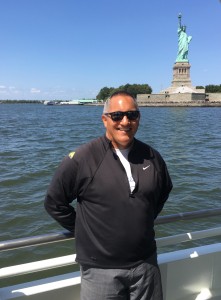
Back from New York City!
I returned to the office yesterday morning after a wonderful trip to California and New York City. My trip began with meeting my son Palani in the Bay Area and helping him organize his belongings, getting it all packed up for his move to New York, and dropping off quite a bit of clothing and other items at a thrift store. We also spent time with all of my siblings and their spouses, including a “bon voyage” party for Palani. While there, I learned that my brother-in-law Adrian was in need of heart surgery, which happened yesterday and so far everything looks good; I appreciate your prayers.
Palani and I then flew to NYC where we saw many of the sites, including Times Square, the World Trade Center Memorial, Statue of Liberty, the Empire State Building, Grant’s Tomb and the historic Riverside Church. We also connected with friends, did some furniture shopping, got Palani moved into his apartment across the street from Columbia University and took a tour of the campus where he’ll be spending the next five years working on his Ph.D. in ecology. We also got to see some pretty amazing shows on Broadway, which I will be sharing about in my sermons in the upcoming weeks.
For the next four weeks, I will be focusing on the theme “Changing Lives, Transforming the World” in our worship services. Making changes in our lives is sometimes a difficult thing; transforming the world seems virtually impossible. However, the Scriptures tell stories and give guidance about change and transformation, and they compel us to believe that they are possible. As you come to church over the next month, I invite you to bring two particular questions with you:
1. What are the changes I would like to see in my life and the lives of people around me?
2. What kind of transformation might God be envisioning for the world?
We will likely come up with more than one answer. However, the answers we have will help form who we are as a congregation and guide us in our decisions for mission and ministry in the future. May we be open to the God of peace and compassion as we search for answers together.
Before I close, I have a special prayer request for the family of Mylo Korn. Mylo is the 4-year-old boy who was run over by a truck on Sunday and died in the hospital in Honolulu yesterday. His mother Miana works with me on the Kaua`i Association Youth and Young Adult Committee and is a member of the Kaua`i Marshallese Church in Hanapepe. I ask that you keep Miana, her family and church in your prayers during this devastating time of loss. May we also remember to pray for all of those on our prayer list, as well as the people affected by hurricanes, flooding and other natural disasters.
Aloha nui!
Kahu Alan Akana
_______________
Due to technical difficulties, videos of Kahu’s Sunday’s sermon have not been uploaded onto
YouTube during the past two months. The situation should be resolved very soon. In the meantime, past sermons can be viewed and shared. You can also subscribe to Kahu’s sermon page on
YouTube; that way you can receive a notification when a new sermon is posted.
“A Message from Kahu Alan Akana” is provided most weeks by the Kahu (Pastor) of Koloa Union Church, a congregation of the United Church of Christ (UCC), a member of the Kauai Association and Hawaii Conference.
by admin | Aug 15, 2017 | Message from Kahu
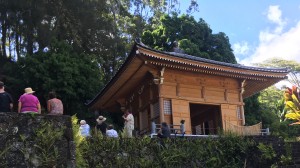
“Pilgrimage of Compassion”
On Sunday morning, I led the congregation in a time of guided silent meditation as we considered the violence, racism and unrest in our nation. I began by sharing about Mother Teresa and her intentional practices of silence. Her time alone with God aloud her to hear God’s voice and find strength, direction and wisdom. I hope our time of silence and reflection will do the same for us.
I have been deeply troubled since Saturday by the overt racism displayed in Charlottesville, VA, and the ensuing violence and death. I have always known that racism exists in our country, but I never dreamed that I would see a crowd of White supremacists publicly marching with torches and chanting racist slogans on American soil.
If there is anything good that came out of the events on Saturday, it is that the darkness among us has been brought to light. We now see clearly the racism, hatred and bigotry that is deeply held by some of our fellow Americans. As much as I dislike the fact that these things are out there, I am glad they have become visible; for now we who follow the way of Jesus (and all others who value each and every human life) can see more clearly our mission and the work that is before us. As we consider this time in our nation’s history, now is the time to say “yes” to compassion, peace and justice; and now is the time to say “no” to any form of racism, hatred and bigotry.
As I participated in the Pilgrimage of Compassion at the Lawai International Center on Sunday, I felt deeply connected to people of all faiths, ethnicities, political persuasions, ages, sexual orientations, gender identities and abilities. While Riley Lee played the shakuhachi flute and led people among the 88 Japanese shrines on the hillside, I imagined extending the pilgrimage throughout the world and inviting all people to walk on a pilgrimage of compassion. We were all there for one reason on Sunday: to acknowledge compassion in our world and to commit ourselves to being more compassionate. This is certainly a pilgrimage on which is worth inviting others to participate.
May we each look around us today and notice someone who needs compassion…and offer it to them…knowing that we who give compassion are just as blessed as those who receive it from us.
Aloha nui!
Kahu Alan Akana
_______________
Videos of Kahu’s sermons are uploaded onto YouTube most weeks. Please share these videos with friends and invite them to our church. You can also subscribe on YouTube ; that way you can receive a notification when a new sermon is posted.
“A Message from Kahu Alan Akana” is provided most weeks by the Kahu (Pastor) of Koloa Union Church, a congregation of the United Church of Christ (UCC), a member of the Kauai Association and Hawaii Conference.



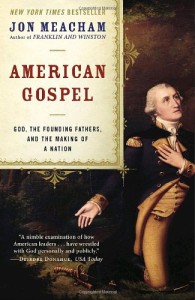
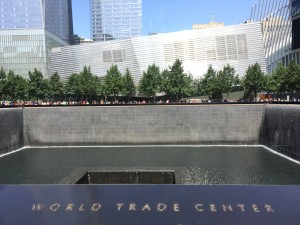



Recent Comments